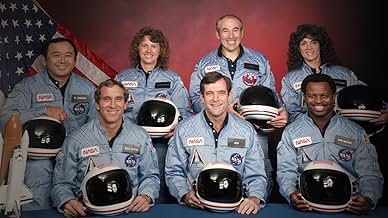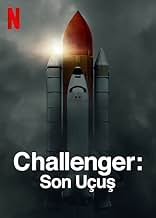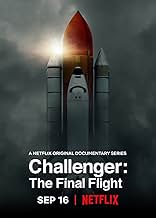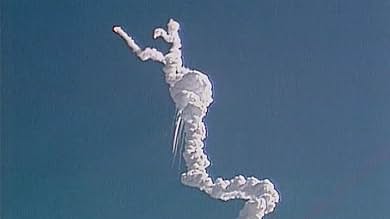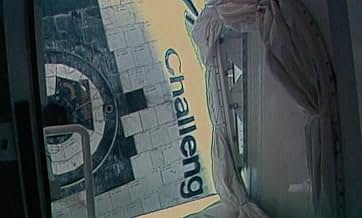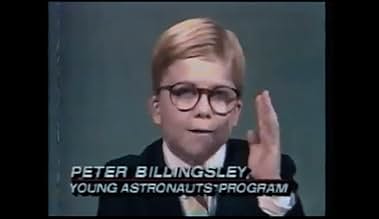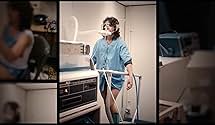CALIFICACIÓN DE IMDb
7.8/10
8.3 k
TU CALIFICACIÓN
Documental de cuatro partes sobre el desastre del transbordador espacial Challenger en 1986, que revela un momento imborrable para una generación de estadounidenses.Documental de cuatro partes sobre el desastre del transbordador espacial Challenger en 1986, que revela un momento imborrable para una generación de estadounidenses.Documental de cuatro partes sobre el desastre del transbordador espacial Challenger en 1986, que revela un momento imborrable para una generación de estadounidenses.
- Premios
- 2 nominaciones en total
Explorar episodios
Opiniones destacadas
The facts that are known about this inexcusable disaster are all over the net. If you are interested in the technical aspects of the accident read the Rogers Commission report.
This is the story of the Challenger disaster from the viewpoint of a lot of people that were there at the time. I found those views compelling and with all of that background information, by the fourth episode I felt like I was back in 1985. It was like I was right there, with all of those people.
Not exactly on topic but a bit of trivia: I worked for Morton Thiokol when the Challenger accident happened. There was a mandatory employee meeting the day after the disaster. We were all required to sign non-disclosure agreements. We were told that if we were caught saying ANYTHING, even the word Challenger, to ANYONE (even co-workers), we would be fired immediately.
This is the story of the Challenger disaster from the viewpoint of a lot of people that were there at the time. I found those views compelling and with all of that background information, by the fourth episode I felt like I was back in 1985. It was like I was right there, with all of those people.
Not exactly on topic but a bit of trivia: I worked for Morton Thiokol when the Challenger accident happened. There was a mandatory employee meeting the day after the disaster. We were all required to sign non-disclosure agreements. We were told that if we were caught saying ANYTHING, even the word Challenger, to ANYONE (even co-workers), we would be fired immediately.
Gripping, informative, and historically significant
I've seen every documentary on space and the Challenger that have been produced. Many were bad, some were good. This four part series is pretty good, covering familiar ground and likely a good refresher for anyone who lived through those times, or more beneficially for those younger people who are just raising their awareness and understanding of this troubling catastrophe.
The producers did use the "it's going to blow up" scenario as the dramatic leverage (e.g. cliffhanger) here. I think its overuse is justifiable, though, given the fact that if the NASA decision makers had listened to the whistleblowers and weighed the risks, the crew would have been pulled off Challenger until corrective design changes could be made (or at the very least, until a launch attempt in February when temperatures were above freezing could be attained).
One remarkable thing to note: Americans were proud of our accomplishments then, and the early footage of the shuttle launches proves it with various video segments showing people actually waving flags and saying how proud they were of their country. It is sad to think that that very footage seems so alien now, given how bad many citizens of America love to trash their own country.
The producers did use the "it's going to blow up" scenario as the dramatic leverage (e.g. cliffhanger) here. I think its overuse is justifiable, though, given the fact that if the NASA decision makers had listened to the whistleblowers and weighed the risks, the crew would have been pulled off Challenger until corrective design changes could be made (or at the very least, until a launch attempt in February when temperatures were above freezing could be attained).
One remarkable thing to note: Americans were proud of our accomplishments then, and the early footage of the shuttle launches proves it with various video segments showing people actually waving flags and saying how proud they were of their country. It is sad to think that that very footage seems so alien now, given how bad many citizens of America love to trash their own country.
I have spent much of my adult life avoiding thinking about this tragedy. It is a case study on how an organization can become wicked and its members essentially the epitome of evil.
For me it was just horribly sad to watch this and there is a prevalent sense of horror as events move toward the inevitable ending.
What made it worth watching for me was to learn about Feynman's role. I knew the outline of it but not the specifics. It's quite amazing.
What astonishes me is there are these awful, old, gross NASA administrators who are still totally unrepentant, although they are clearly and obviously to blame for what happened.
For me it was just horribly sad to watch this and there is a prevalent sense of horror as events move toward the inevitable ending.
What made it worth watching for me was to learn about Feynman's role. I knew the outline of it but not the specifics. It's quite amazing.
What astonishes me is there are these awful, old, gross NASA administrators who are still totally unrepentant, although they are clearly and obviously to blame for what happened.
Much like President Kennedy's assassination on 11/22/63 or the terrorist events of 9/11/01, the moment that the space shuttle Challenger exploded just minutes after take-off in 1986 is one of those "where were you when..." moments. This documentary looks back at the tragedy and its context in American culture at the time.
The first two episodes are more history lessons than anything else, setting the groundwork for why the space shuttle program--and Challenger specifically--was a topic of conversation throughout the 1980s. It also examines all the crew members of that fateful voyage, including of course the much-publicized schoolteacher Christa McAuliffe. Your enjoyment mileage may vary for these episodes, as besides interviews with surviving family members they don't bring much more to the table other than context.
The final two episodes, however, really dig into the exact reason behind the malfunction (faulty o-rings) and clearly re-trace a faulty decision-making process from NASA that placed slavish devotion to schedule (and some hubris mixed in) over protecting human life. These episodes are riveting, especially when key NASA players are interviewed for their thoughts after the passage of time. You might be surprised at the recalcitrance of some of them.
Overall, this is a solid and balanced (both context and deep-dive) look at an incredibly sad event. It will bring tears to your eyes on multiple occasions. The access to family members of the astronauts, former high-level NASA officials, and even certain celebrities of the time are the hallmark here, along with a solemn lesson to be learned about the value of safety versus hubris.
The first two episodes are more history lessons than anything else, setting the groundwork for why the space shuttle program--and Challenger specifically--was a topic of conversation throughout the 1980s. It also examines all the crew members of that fateful voyage, including of course the much-publicized schoolteacher Christa McAuliffe. Your enjoyment mileage may vary for these episodes, as besides interviews with surviving family members they don't bring much more to the table other than context.
The final two episodes, however, really dig into the exact reason behind the malfunction (faulty o-rings) and clearly re-trace a faulty decision-making process from NASA that placed slavish devotion to schedule (and some hubris mixed in) over protecting human life. These episodes are riveting, especially when key NASA players are interviewed for their thoughts after the passage of time. You might be surprised at the recalcitrance of some of them.
Overall, this is a solid and balanced (both context and deep-dive) look at an incredibly sad event. It will bring tears to your eyes on multiple occasions. The access to family members of the astronauts, former high-level NASA officials, and even certain celebrities of the time are the hallmark here, along with a solemn lesson to be learned about the value of safety versus hubris.
¿Sabías que…?
- TriviaWhile the Challenger crew were the first to die during a mission, they were not the first NASA crew to be killed. The three-man crew of Apollo 204 (aka, Apollo 1), Gus Grissom, Roger B. Chaffee and Edward H. White II were killed in a fire in their capsule during a launch practice run on the launch pad on January 27, 1967. The docuseries makes no mention of this earlier fatality (what the NASA engineer said was that no NASA astronaut had been "killed on their way to space" to fit the narrative of the Challenger deaths, so it was a matter of semantics).
Selecciones populares
Inicia sesión para calificar y agrega a la lista de videos para obtener recomendaciones personalizadas
- How many seasons does Challenger: The Final Flight have?Con tecnología de Alexa
Detalles
- Tiempo de ejecución45 minutos
- Color
- Mezcla de sonido
Contribuir a esta página
Sugiere una edición o agrega el contenido que falta

Principales brechas de datos
By what name was Challenger: The Final Flight (2020) officially released in India in English?
Responda


